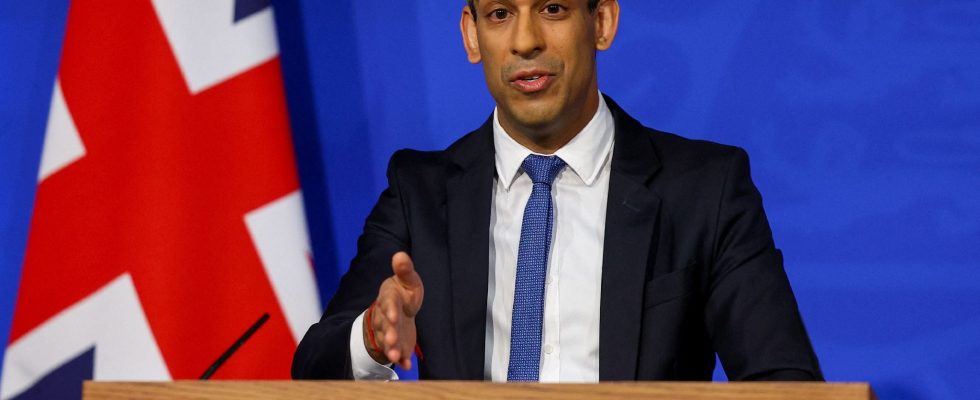It has already sparked an outcry among numerous international bodies. On the night of Monday to Tuesday April 23, the British Parliament approved the bill allowing the expulsion to Rwanda of asylum seekers who entered the United Kingdom illegally.
After three weeks of heated debates, the British press as a whole highlights the end of an “endless ping-pong” between the lower house and the reluctant upper house. A bill “a source of controversy and which will continue to be so”, points out the public television channel BBC. While the conservative newspaper The Daily Telegraph, notes “a major blow for Rishi Sunak and in theory a step closer to his goal of stopping the boats” crossing the Channel. For its part, Kigali said it was “satisfied” by the adoption of the text, with government spokesperson Yolande Makolo adding that the authorities were “impatient to welcoming people relocated to Rwanda”.
Rwanda, a “safe country”?
Announced two years ago by the conservative government of Rishi Sunak and presented as a flagship measure of its policy to combat illegal immigration, this project aims to send asylum seekers to Rwanda – wherever they come from. – entered the United Kingdom illegally, notably by crossing the Channel on inflatable boats. This law provides in particular for the detention “without notice” of migrants to avoid any risk of flight, before sending them to administrative detention centers in Rwanda, and this “as long as there is a reasonable prospect of expelling them within a reasonable period of time “, explain The Daily Telegraph.
This new legislation is supposed to be in line with a treaty signed by Kigali, which notably provides for financial compensation in exchange for welcoming migrants. The text debated in Parliament aimed to respond to the conclusions of the Supreme Court, which judged the initial project illegal last November.
Among the points of tension was the recognition of Rwanda as a “safe country”. “Kigali is safer than London,” said Conservative Andrew Mitchell, a member of the Foreign Affairs Secretariat. “Really?”, asks the center-right daily The Times. Because if Rwanda presents itself as one of the most stable countries on the African continent, its president Paul Kagame is accused of governing in a climate of fear, stifling dissent and freedom of expression.
“Accomplices to violations”
The bill is expected to receive royal approval on Tuesday. Interior Ministry sources cited by the newspaper The Guardian (centre left) have also indicated that they have already identified a group of asylum seekers (around 150 people) with weak legal claims to remain in the United Kingdom and who will be part of the first tranche which will be sent to East Africa in July.
Rishi Sunak said it himself: the first plane could take off within 10 to 12 weeks, or during the month of July. But according to a journalist specializing in legal issues for the public channel BBC, “the takeoff of a migrant plane bound for Rwanda should not happen anytime soon” because “long legal battles are to come”. “It is possible that the entire principle of the legislation could be challenged in court.”
Daily life The Timesnotes for its part that airlines which engage in this activity could expose themselves to “criticism from the UN”, as “accomplices in violations” of international human rights.
The United Nations also asked the British government on Tuesday to “reconsider its plan” to deport migrants to Rwanda, accusing it of creating “a dangerous precedent in the world”. The High Commissioner for Human Rights, Volker Türk, and his counterpart in charge of refugees, Filippo Grandi, call on the government “to instead take practical measures to combat irregular flows of refugees and migrants, on the basis international cooperation and respect for international human rights law. Michael O’Flaherty, the head of human rights at the Council of Europe, also called on the British government to reconsider its project. “The UK government must refrain from deporting people under its Rwanda plan and reverse the bill’s attack on the independence of the judiciary,” he said.
Earlier on Monday, during a press conference just before the vote, Rishi Sunak promised that “no foreign court will prevent us from getting the planes off the ground”, while the first expulsions to Rwanda had been blocked by European justice a few months earlier.
